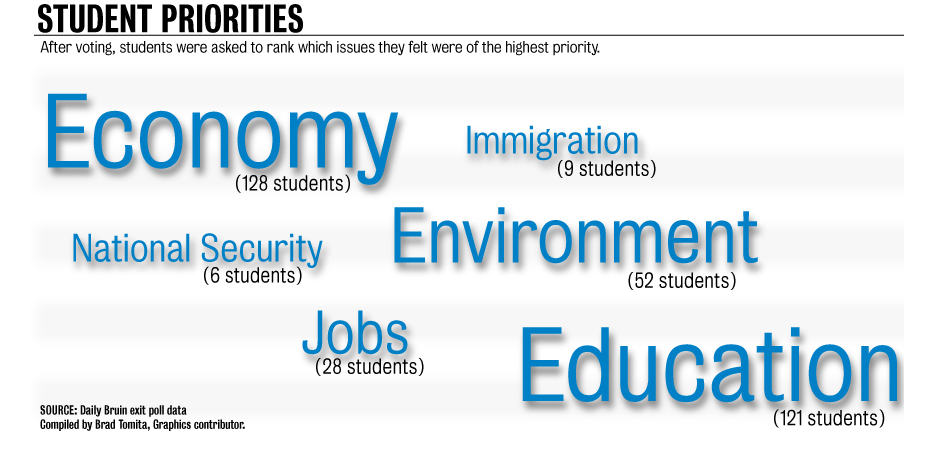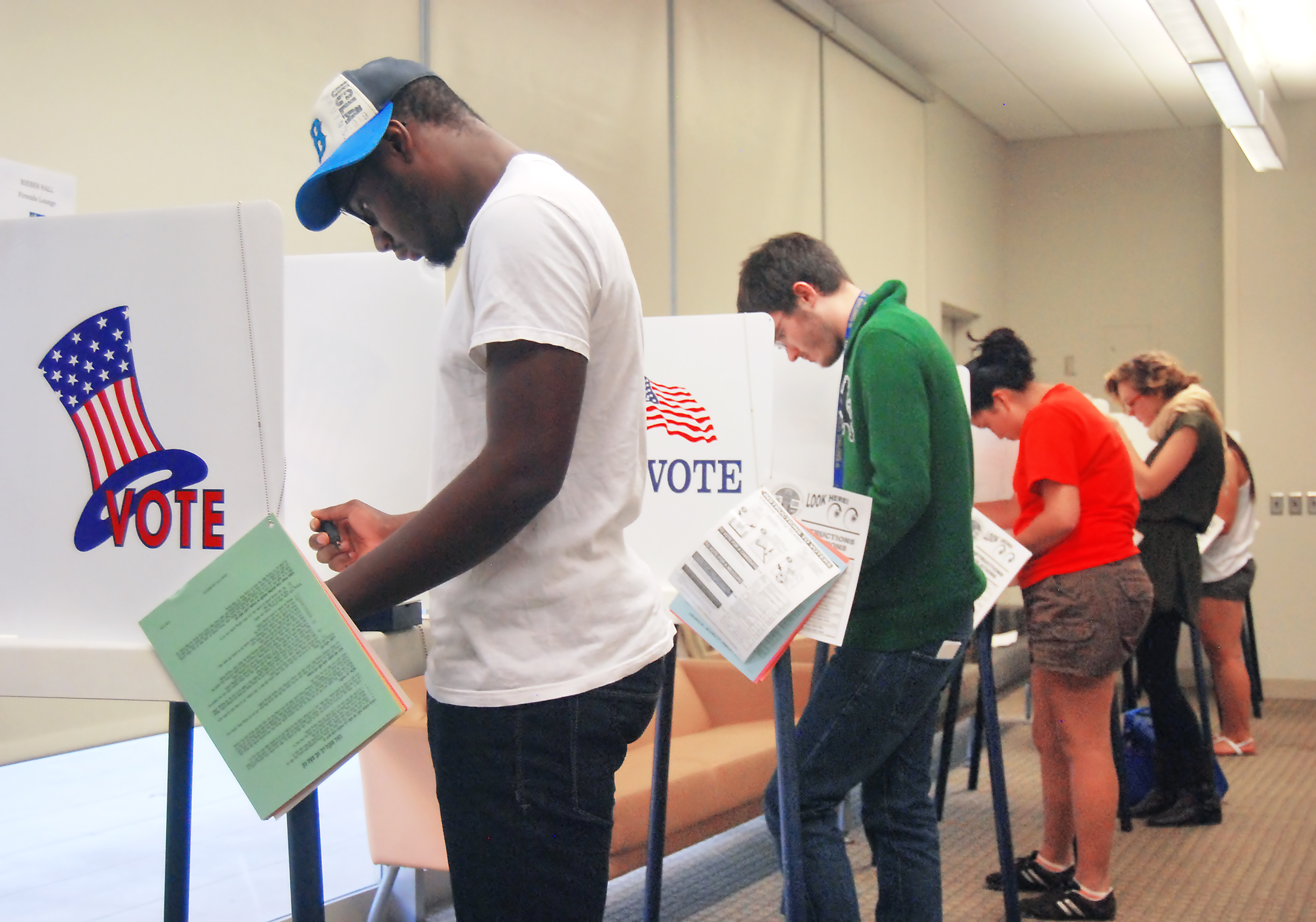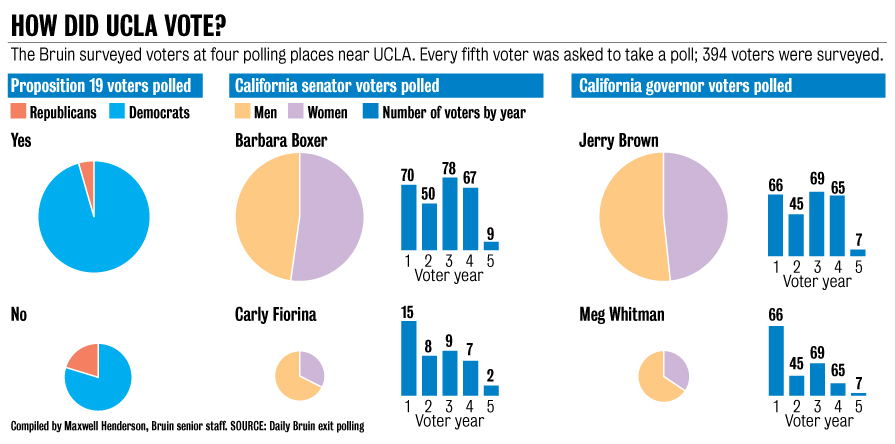

First-year art student Rakeem Cunningham casts his vote on Election Day in Rieber Hall, one of four polling stations near UCLA. According to exit polling done by the Daily Bruin outside the stations, the most important issues to student voters were the economy and education.
As the University of California prepares to discuss another student fee increase for the next academic year amid continuing budget woes, students will look to Governor-elect Jerry Brown and a new Legislature to commit to higher education funding.
In exit polling conducted by the Daily Bruin at polling sites, students overwhelmingly marked education and economy as the issues that influenced them most.
Brown historically has supported higher education, but UCLA political science Professor Tom Schwartz said it is not clear that Brown can solve a budget crisis that extends across the entire state.
“In his day, Democrats differed from Republicans (in that they) did not want to spend a fortune but tended to favor the UC system a little more,” Schwartz said.
Democrats benefit more from constituencies that support K-12, community college and university funding, Schwartz added.
“The chances are that balance (seen in Brown’s previous term) will be preserved,” Schwartz said.
Outgoing Gov. Arnold Schwarzenegger fulfilled a commitment to fund higher education by restoring some funding to the UC and CSU systems in the budget signed Oct. 8. Still, the UC remains 10 percent below its funding level in 2007-2008.
As governor, Brown will also appoint the members of the UC Board of Regents, who serve 12-year terms. One-third of the regents will be up for reappointment before Brown’s term is up.
Frustration with this year’s record-breaking budget delay contributed to the passage of Proposition 25, which will require only a majority of the state Legislature to approve a budget. Before the proposition passed, California was one of three states to require a two-thirds vote to approve the budget.
Proposition 25, for the first time, penalizes lawmakers through salary suspensions for every day a budget agreement is late.
Elsewhere on the ballot, voters cut down Proposition 19, an initiative that tried to legalize the sale and use of nonmedical marijuana in California. Medical marijuana is still legal to purchase under California law, and this practice is still banned by federal law.
Yet exit polling conducted at the poll sites indicated an overwhelming majority of students supported Proposition 19.
Among students who identified themselves as Democrats, about four times as many voted yes as voted no for the proposition.
Despite the strong UCLA student support, Mark Kleiman, a professor of public policy who specializes in drug control policy, said the overall election turnout was heavily dominated by older age brackets who opposed the initiative.
“If we had a massive turnout in the under-30 group, we would have had a chance,” Kleiman said.
He said he thinks Proposition 19 was badly written, but the initiative was significant because support of legalized cannabis has not been vocalized at a national level before.
“It would be interesting to see another (initiative) come up in the future,” Kleiman said.
In California congressional races, Democratic incumbents Barbara Boxer and Henry Waxman each retained control of their seats. The victories mark Boxer’s fourth term as U.S. senator and Waxman’s 19th as representative of California’s 30th District.
Waxman’s re-election reflected a statewide trend of incumbents retaining their congressional seats. As of press time, 44 out of 53 seats were held by incumbents.
Unlike some states, California did not see a dramatic shift toward the conservative party. Roughly the same number of Democrats and Republicans were elected to the House. Key leader positions throughout the state are in democratic hands.
Proposition 20, which appoints citizens instead of legislators to draw district lines, has the greatest potential to change the make-up of the state down the road, Schwartz said.
“This is probably one of the long-term sweeping changes in terms of long-term effects that may pass this year,” he said.
“(Proposition 20) might have a long-term effect in the way politics is run in California.”
